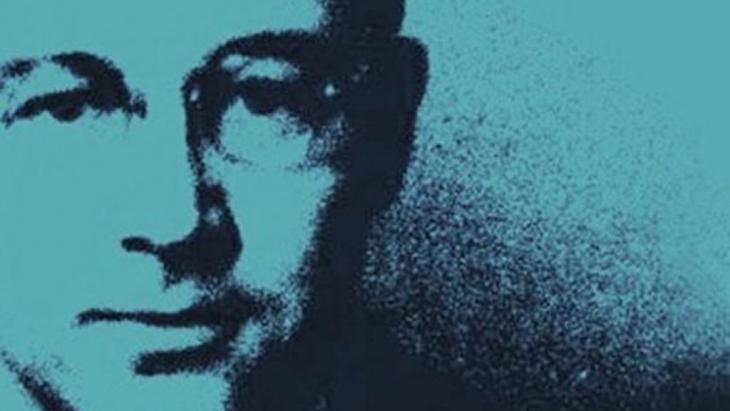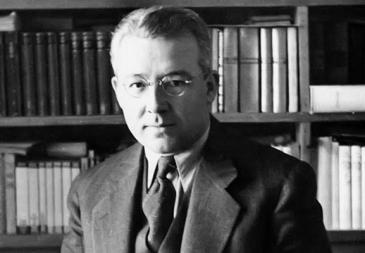A modern-day Odysseus

In his first novel, written in 1937, Sabahattin Ali created a portrait of the rural Turkish population and its way of life in the period just preceding the outbreak of the First World War. The location of the story is the province of Anatolia, transformed by the novel into a symbolic landscape where tragic destinies and a desperate campaign of revenge are played out.
The hero of the novel is Yusuf, an orphan, whose struggle to survive begins, as it were, in the cradle. His predestined role begins on the day when a state commission made up of a public prosecutor, a public health officer and a district administrator arrive in an Anatolian village to investigate a brutal robbery and find Yusuf on the edge of the bed next to his murdered parents.
Yusuf is only ten years old. Although he too was a victim of the assault, saw his parents die, had to fight with one of the burglars and lost the thumb of his right hand in the process, he nonetheless seems calm and composed, responding concisely and confidently to the questions of the district administrator.
A life akin to internal exile

He is subsequently adopted by the district administrator (not entirely out of altruism, but also because he himself has no son), and a life akin to internal exile begins for the taciturn and introverted Yusuf. The boy does not feel at home in his new surroundings, which he cannot grow accustomed to despite making friends and forging new family ties. The reader follows Yusuf's unsuccessful attempts to find his own path in life and, in the process, his meeting with the girl that will become his great love – the daughter of the district administrator, herself only a small child upon their first encounter.
Although the character of Yusuf is at the heart of the novel, the author is not content with only offering readers a portrait of the youth. Instead, he employs a whole host of main and secondary characters in order to paint a far-reaching panoramic image of society. He thereby creates impressive portraits of quite different individuals. In addition to the somewhat dull, yet good-natured district administrator, his young, feeble wife, and a number of government officials depicted with a fine sense of irony, there are also true villains who are not afraid to commit bribery or even murder. The real victims of this patriarchal society, the farmworkers and their young daughters, who are subjected to the abuse and despotism of the village community, are also given a voice by the author.
The epic scope of the novel requires a degree of patience from readers. As with the novels of Tolstoy and Dostoyevsky, readers regularly encounter passages in Sabahattin Ali that serve to describe the milieu and not to move the plot forward. Then again, it is exactly these almost ethnographically exact micro-observations that allow the author to strike his blows of social criticism.
For example, the author depicts a spectacular murder that takes place right before the eyes of a wedding party in order to throw a spotlight on the corrupt judicial system, which resorts to foul methods to protect the perpetrator, the son of a local rich industrialist, and ensures that the deed goes unpunished.
Laziness in a dull government offices

The local authorities, presided over by the district administrator, are not spared the author's bitter irony either. Yusuf, who throughout the whole novel fails in his attempts to find a vocation and stand on his own two feet, is whisked into the civil service by his adoptive father and appointed secretary in charge of keeping written records – Yusuf, of all people, who has hardly had any schooling and is physically encumbered in his work by the fact that he lost thumb on his right hand all those years previously! He whiles away the time in the dull government office with other, mostly sleeping, bureaucrats and just sits "playing with his quill."
At the heart of the story lies Yusuf's relationship to the district administrator's daughter. From the very beginning, Muazzez enjoys a close relationship with Yusuf and regards him as her protector. She refuses to marry another man to whom she has been promised. Yet, Yusuf, who also loves her passionately, lacks any standing in the village and does not have the means to marry her.
They do, however, eventually succeed in fleeing to another village to get married. When they return, they find that the situation is even bleaker than before. Yusuf remains an outsider in his unloved hometown. After the sudden death of the district administrator, the situation gets even worse. Yusuf loses his bureaucratic post and is sent off to work elsewhere. Meanwhile, his young wife remains at home. At the instigation of her mother, she ends up being prostituted at evenings of amusement and gaiety. Muazzez – who is only fifteen! – is too weak to defend herself from her intimidating surroundings; this phase of her life becomes a sheer nightmare.
The situation cries out for an act of liberation. The question as to whether Yusuf is prepared to fight increasingly becomes a central issue of the plot and is what keeps this book as gripping as it is until its conclusion. Through the sheer strain and hopelessness of the situation, Yusuf gradually begins to resemble one of the great figures of the Greek classics – Odysseus. Similar to the great hero, Yusuf finds himself far from home and cannot prevent his wife being idolised and harassed by other men. While he is forced to wander in far off places, "infamous deeds" are being committed in his house. He is called upon to take revenge.
Those readers ready to immerse themselves in this sweeping epic novel will be rewarded with a language rich in imagery from an author confident in his formal and stylistic mastery of the genre. The book has been excellently translated into German by Ute Birgi. The novel creates a broad panoramic portrayal of an apparently far-distant age, yet it is so brimming with lively details and the reader is drawn in so closely to events that it is almost as if history were being played out before our very eyes.
Volker Kaminski
© Qantara.de 2014
Translated from the German by John Bergeron
Editor: Aingeal Flanagan/Qantara.de
